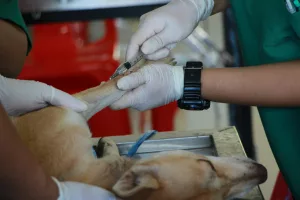Supporting animal rights through mindful consumption of beauty products is a powerful way to align your purchases with your values. The beauty industry is vast, and navigating it with animal welfare in mind involves understanding which products to avoid and why. Let’s dive deeper into the types of beauty products you should be cautious about if animal rights are close to your heart. When we talk about beauty products that raise concerns for animal rights supporters, we’re often referring to two main areas: animal testing and animal-derived ingredients. However, the issue is broader, encompassing packaging materials, ingredient sourcing practices, and more. Here’s a more detailed look at what you should consider:
1. Products Tested on Animals
Animal testing for cosmetics is a significant ethical issue. It involves using animals to test the safety and efficacy of beauty products, often leading to pain and suffering. This practice is not only ethically questionable but also scientifically outdated. Here are a few key points to consider:
1.1. Understanding Animal Testing
Animal testing typically involves procedures such as skin and eye irritation tests, acute toxicity tests, and repeated dose toxicity tests. These tests can cause severe distress and injuries to animals, who are often euthanized afterward. Many countries, including the European Union, have banned animal testing for cosmetics, but it remains legal in others, such as China.
It’s crucial to understand the impact of these tests. For example, the Draize test, used to assess eye irritation, involves applying substances to the eyes of restrained rabbits, causing intense pain and often resulting in blindness. These animals suffer immensely for tests that can be replaced by modern alternatives.
1.2. Alternatives to Animal Testing
Fortunately, there are alternatives. In vitro testing (using human cell cultures) and advanced computer models can provide more reliable results. Brands that invest in these technologies are at the forefront of ethical beauty.
Companies like L’Oréal have developed human skin models that replicate the structure and function of human skin, allowing for more accurate testing without animal involvement. This progress not only spares animals but also provides more relevant human data.
1.3. How to Identify Cruelty-Free Brands
Look for certifications like the Leaping Bunny or the PETA Cruelty-Free logo, which indicate that a product has not been tested on animals at any stage of its development. Be cautious of vague claims like “not tested on animals,” which may not cover all aspects of production.
Research is your best friend here. Websites like Cruelty-Free Kitty and Logical Harmony provide up-to-date lists of certified cruelty-free brands. Remember, a truly cruelty-free brand will be transparent about its practices and policies.
2. Products Containing Animal-Derived Ingredients
The use of animal-derived ingredients in beauty products is widespread but often hidden in complex scientific names. Here are some common ingredients to watch out for:
2.1. Common Animal-Derived Ingredients
- Lanolin: Derived from sheep’s wool, used for its moisturizing properties.
- Collagen: Often sourced from animal tissues, used for its anti-aging benefits.
- Carmine: A red pigment made from crushed cochineal insects, used in lipsticks and blushes.
- Keratin: Extracted from the hair and horns of animals, commonly found in hair care products.
These ingredients are prevalent in many beauty products, often without consumers realizing their origins. For instance, lanolin is frequently used in lip balms and moisturizers, while collagen is a staple in anti-aging creams.
2.2. Plant-Based and Synthetic Alternatives
Opt for products that use plant-based or synthetic alternatives. For example, vegetable glycerin can replace lanolin, and beet juice can substitute for carmine. Brands like Lush and The Body Shop offer extensive ranges of vegan products.
Innovative companies are constantly developing new plant-based alternatives. For example, algal oil is a sustainable substitute for fish-derived omega-3s, and synthetic pearls can replace those sourced from oysters. These alternatives not only spare animals but often have a lower environmental impact.
2.3. Reading Ingredient Labels
Learning to decipher ingredient labels is crucial. Many ingredients have both animal and plant-derived versions, such as stearic acid. Look for products specifically labeled as vegan to ensure they are free from animal-derived components.
When examining labels, familiarize yourself with common prefixes like “hydrolyzed” or “gelatin,” which often indicate animal origin. Apps like “Think Dirty” can help identify the nature of ingredients quickly.
3. Fur and Leather-Based Products
Fur and leather are not just fashion materials; they sometimes find their way into beauty products, particularly in packaging or applicators.
3.1. The Issue with Fur and Leather
The production of fur and leather involves raising and slaughtering animals, often under inhumane conditions. This practice not only raises ethical concerns but also environmental ones, as the processing of these materials is resource-intensive.
In beauty, fur is often used in makeup brush bristles, while leather may appear in packaging. The fur industry is notorious for its cruelty, with animals kept in cramped cages and often killed in painful ways.
3.2. Vegan and Synthetic Alternatives
Consider alternatives such as synthetic brushes and accessories. Brands like EcoTools and Real Techniques offer high-quality vegan brushes that do not compromise on performance.
Synthetic fibers like Taklon and nylon are not only cruelty-free but also hypoallergenic, making them a better choice for sensitive skin. These brushes are just as effective as their natural counterparts, often with the added benefit of being easier to clean.
4. Non-Sustainable Palm Oil
Palm oil is ubiquitous in beauty products but its production can be linked to severe environmental and ethical issues.
4.1. Environmental Impact of Palm Oil
Unsustainable palm oil production leads to deforestation, destroying habitats for endangered species like orangutans and Sumatran tigers. This deforestation contributes to climate change and biodiversity loss.
The palm oil industry is also linked to human rights abuses, including the exploitation of workers. As consumers, we can drive demand for ethical practices by choosing products that support sustainable sources.
4.2. Choosing Sustainable Palm Oil
Look for products with certifications from the Roundtable on Sustainable Palm Oil (RSPO), which indicates that the palm oil used is sourced ethically. Brands like Aveda and The Body Shop have committed to using sustainable palm oil in their products.
To go a step further, support brands that not only use RSPO-certified palm oil but also engage in direct sustainability initiatives, such as restoring deforested areas or supporting local communities.
5. Mink Eyelashes and Hair Extensions
Mink lashes and extensions have gained popularity for their luxurious look but come at a high ethical cost.
5.1. Ethical Issues with Mink Products
Minks are often kept in cramped, unsanitary conditions and killed for their fur. The process is far from humane and conflicts with animal rights principles.
The allure of mink lashes lies in their softness and lightweight feel, but alternatives have advanced significantly, offering similar qualities without the ethical baggage.
5.2. Synthetic Alternatives
Synthetic lashes and extensions have come a long way in mimicking the look and feel of mink products. Brands like Ardell and Eylure offer cruelty-free options that are just as stunning and far more ethical.
These synthetic options are not only cruelty-free but also more hygienic, as they don’t harbor bacteria as natural fibers might. Plus, they are often more affordable, making them a win-win choice for conscious consumers.
6. Products with Ambiguous Labels
Ambiguity in labeling can lead to unintentional support of unethical practices.
6.1. The Importance of Clear Labeling
Labels such as “may contain animal ingredients” or vague cruelty-free claims without certification can be misleading. Transparency is crucial for informed decision-making.
For instance, a label claiming “cruelty-free” might still mean the product was tested on animals in certain countries. Always look for certifications and familiarize yourself with reliable logos and seals.
6.2. Trustworthy Certifications
Seek out third-party certifications, such as the Vegan Society’s sunflower logo, to ensure that products are genuinely vegan and cruelty-free.
Certifications from organizations like Leaping Bunny, PETA, and Choose Cruelty-Free provide assurance that the product adheres to strict ethical standards. These organizations regularly audit companies to ensure compliance.
7. Supporting Ethical Beauty Brands
Your purchasing power is a vote for the kind of world you want to live in. Supporting brands that prioritize ethics over profits can drive significant change in the industry.
7.1. Research and Advocacy
Research brands’ ethical policies and practices. Many companies have detailed sections on their websites about their cruelty-free and vegan commitments. Engage with brands on social media to encourage transparency and accountability.
By supporting brands like Drunk Elephant, which focuses on clean and ethical beauty practices, you help promote a market where ethics are valued. Furthermore, sharing your positive experiences with these brands can influence others to make similar choices.
7.2. Building a Cruelty-Free Routine
Transitioning to a cruelty-free beauty routine doesn’t have to happen overnight. Start by replacing products as they run out, focusing on one category at a time, such as skincare or makeup.
Consider creating a checklist of essentials and researching cruelty-free alternatives in advance. This preparation ensures that when it’s time to replace a product, you have a ready-to-go ethical option.
8. The Bigger Picture: Conscious Consumerism
Beyond individual products, consider the broader implications of your choices. Conscious consumerism is about making thoughtful decisions that reflect your values and contribute to a more sustainable and ethical world.
8.1. The Role of Education
Educating yourself and others about the impact of beauty products on animal welfare is crucial. Share information and resources with friends and family to spread awareness.
Consider joining or supporting organizations that advocate for animal rights, such as Cruelty-Free International or the Humane Society International. These groups provide valuable resources and opportunities to get involved in broader campaigns.
8.2. The Collective Impact
Every purchase decision contributes to a larger movement towards ethical beauty. By choosing cruelty-free and vegan products, you not only protect animal rights but also promote more sustainable practices within the industry.
Collectively, as more consumers demand ethical products, companies are forced to adapt. This shift can lead to more comprehensive changes in industry standards, benefiting both animals and the environment.
The journey towards a completely ethical beauty routine is ongoing and personal. By remaining informed and making conscious choices, you can minimize harm to animals and support a more humane approach to beauty. Remember, every small step counts, and together, we can influence the industry for the better.



